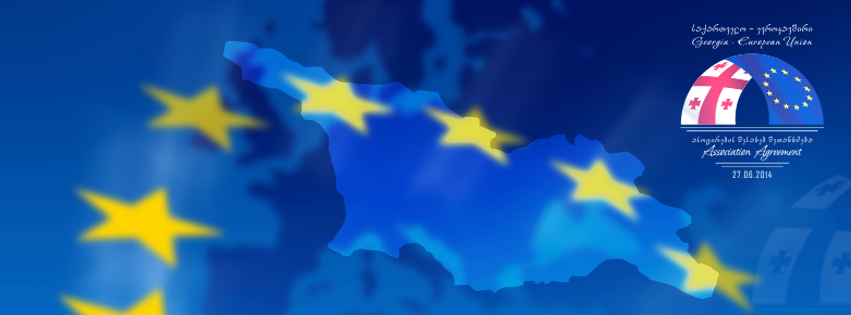


 Today the EU-Georgia Association Agreement was signed. The negotiations between the parties on the text of the agreement had been under way for three years. Nevertheless, the agreement will obviously not come into force straight after the signature. The Association Agreement is an international treaty which needs to be ratified by the Parliament of Georgia as well as by the European Parliament and the member states of the EU.
Today the EU-Georgia Association Agreement was signed. The negotiations between the parties on the text of the agreement had been under way for three years. Nevertheless, the agreement will obviously not come into force straight after the signature. The Association Agreement is an international treaty which needs to be ratified by the Parliament of Georgia as well as by the European Parliament and the member states of the EU.
No doubt, signing of the Association Agreement is a historical moment for Georgia. Hence it is important for every citizen to be informed about the main topics included in the treaty. At the very outset, the agreement emphasizes the need for protecting human rights, respecting the principles of free trade, rule of law, good governance, fight against corruption and etc. Inter alia the importance of good governance, transparency and accountability is highlighted in the treaty. The parties agree to take action in order to further pursue the public administration reform, build an accountable, efficient and effective civil service.
Within the auspices of the political dialogue and reform the EU reaffirms the support for the territorial integrity of Georgia and stresses its readiness to further assist the country in the process of conflict resolution. Stability and security in the immediate neighborhood is one of the main priorities of the EU Foreign and Security Policy.
The Deep and Comprehensive Free Trade Agreement (DCFTA) constitutes a significant part of the Association Agreement. The final goal of the DCFTA is granting Georgia access to the free movement of goods, capital and services exercised within the EU MSs. The creation of the free trade area will abolish tariffs on imports which will facilitate to the process of growing Georgian economy.
The Association Agreement does not in itself combine detailed provisions on the free movement of persons between the EU and Georgia. The latter is the subject of the Visa Facilitation Agreement. It is important to internalize that before visa free regime between Georgia and the EU will become the reality, legislation and practice in Georgia should be brought in line with the EU requirements, inter alia by establishing an effective immigration policy. This is the reason why cooperation between the EU and Georgia in the area of migration and border control is included in the Association Agreement.
The support of the EU to assist Georgia in the process of reforming the areas of unemployment, social policy, healthcare and regional development, cooperate on energy and environment protection issues, help develop agriculture and truism and etc. should also be emphasized.
The Association Agreement unambiguously highlights the readiness of the EU to grant Georgia financial assistance with the aim of planning and implementing reforms in different sectors. During the period of 2011-2013 for instance the financial assistance received by Georgia from the EU constituted 180 mln Euros.
It should be highlighted that the Association Agreement is quite broad and deals with numerous aspects of governance, whereas the consequent action plan will contain in itself more specifications. Signing of the Association Agreement does not in itself contain any guarantees for Georgia becoming the EU MS, hence further undertaking effective reforms in different areas of governance has gained even more importance today.